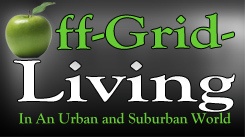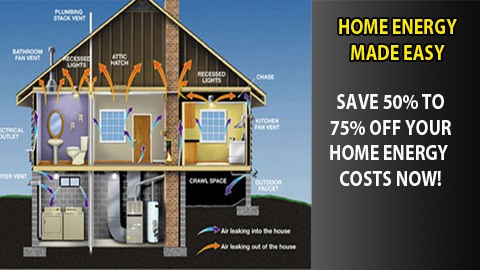
“Once you got a solar panel on a roof, energy is free. Once we convert our entire electricity grid to green and renewable energy, cost of living goes down.”
Elizabeth May

Why More And More Households Are Turning To On Grid Solar systems for Power
In 1950 the global population was just over 2,5 billion people. By the end of 2021, the number of people populating the planet will be just under 7,9 billion - a growth trend that is not expected to flatten significantly for at least the next decade. As the human population grows, so do demands on natural resources, from potable water to food. In tandem with this growth has come an explosion in urban numbers and industrialization - and a massive increase in the demand for on grid solar power.
For many years power requirements were met by large-scale power generation plants that used fossil fuels such as coal. The nuclear revolution saw the establishment of nuclear power plants which were once viewed as a solution to the growing crisis facing power generation, but each of these approaches came bundled with problems. Burning finite supplies of fossil fuels is highly polluting - and they will run out. Nuclear power has come on in leaps and bounds as far as safety is concerned, however, when malfunctions occur they can be catastrophic (witness Chernobyl). The disposal of nuclear waste is a challenge that has still not been adequately met - and nuclear power stations simply cannot match the output from those power stations which rely on those finite supplies of fossil fuels.
However, renewable power, such as solar, wind-generated power, hydrothermal power solutions, and even tidal power are beginning to make a real difference to communities across the globe.
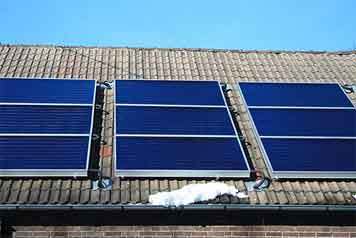
Facts about oN Grid Solar Power Systems
Solar power especially has come on in leaps and bounds over the past two decades. The increasing efficiency of solar power has had an impact on the lives of ordinary homeowners who are turning to domestic solar power solutions in ever-increasing numbers. It is a 'green' solution to power generation and can save the household significant amounts of money on power bills - and, in certain cases even provide an income to offset the costs of installation.
One of the most popular home solar power options is on-grid solar power. What makes this such a popular choice for homeowners across the globe?
Firstly, it is important to know that an on-grid solar power installation does not mean that the household removes itself completely from reliance on the power supplied by power utilities, but for this reason (and others) it offers advantages that options such as off-grid systems (which operate completely independently from the power supplied by centralized providers) do not.
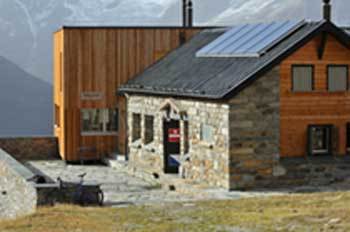
On Grid Solar is USed With Your Existing Utility Company
The first difference between the two systems is that on-grid solar power systems do not use batteries for power storage. The household makes use of solar power during the day - and at night reverts back to a reliance on the electricity supply grid. Battery technology has not advanced as quickly as other components of a solar power system (for instance panels). Batteries are still by and large expensive and inefficient, although the technology is growing more sophisticated, driven to some extent by research and production methods being used in electric vehicles.
On Grid Solar Doesn't Need Batteries.
On-grid solar power systems provide that middle point that leverages the ability of the traditional grid to provide power in the absence of sunlight and the cost-effectiveness of pure solar power when sunlight is available in abundance. This can help to reduce energy bills due to the fact that most power-hungry household appliances such as air conditioners, heaters and refrigerators can rely on the solar power input during the day and electricity supplied by the grid during the night. The benefits to the household budget are obvious.
The cost of installation can be a major hurdle that causes many householders to balk at the installation of solar power. However, the cost of off-grid solar power installations is hugely influenced by the cost of batteries. The most efficient of these batteries can represent a significant upfront expenditure (they can in fact double the cost of a solar power installation). However, as mentioned previously off-grid solar power systems do not require the use of batteries.
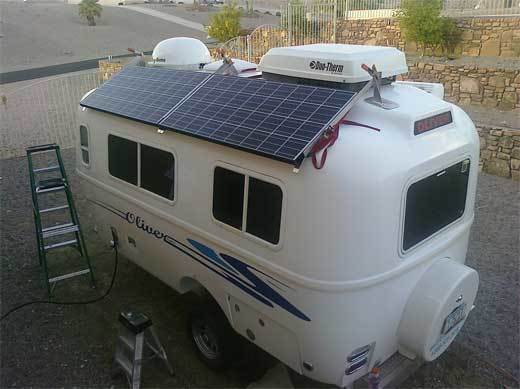
Generate Income From Solar
Traditional power supply companies feed power into the grid in a manner that would theoretically meet the needs of all of the consumers that are serviced by that grid - however, the reality is very different. Ever-increasing numbers of household consumers in urban and adjacent areas and the skyrocketing demands of industry mean that sometimes aging generation plants cannot keep up with demands.
The spare capacity is usually razor thin. In times when demands peak, such as heatwaves. Given that global temperatures are steadily rising, what were once abnormally high temperatures have become the new norm. More frequent power outages will inevitably become more and more common. Those households that have on-grid solar power systems will not be storing their excess power and, in certain regions can then supply that excess power back into the grid, reducing the load.
The power company will then issue credits in relation to how much power has been supplied. This can significantly offset the initial costs of installation by allowing the household to recoup those costs much more quickly than would be the case with off-grid systems. In addition in some cases, the value of the credits provided can cover the costs of energy of household energy consumption in its entirety.
Longevity
There is a common misunderstanding that solar power installations require almost constant maintenance. However, the use of modern materials and manufacturing methods means that the majority of solar installations are virtually maintenance-free. Studies indicate that solar panels will need to be replaced every 25 - 30 years. However, long before that time has elapsed an on-grid solar installation would have paid for itself - in some cases many times over.

It's Better for the Environment.
Although on-grid solar installations cannot match the 'Green' credentials of the off-grid solar power systems their impact should not be underestimated. The fact that they significantly reduce reliance on fossil fuels cannot be ignored. There is also an argument to be made that the batteries used in off-grid systems contribute significantly to environmental damage both during their manufacture and when they are disposed of.
Conclusion
When all is said and done an on-grid solar installation makes sense for a household. It can reduce power consumption and save money and it contributes to a greener world. It is an option that every homeowner should seriously evaluate on its merits.

Solar Hot Water Collector: The Best Guide to Building and Installing a Solar Hot Water System
Hello there, fellow solar enthusiasts! It’s great to be talking with you

Hybrid Solar Wind Power Generation System: Best Comprehensive Guide to Building Your Own Renewable Energy Solution
Hello there! If you are looking for an alternative energy source that

Solar Heating System: Best Comprehensive Guide to Building and Installing a Solar Heating System
As a solar heating system expert, I have seen firsthand how this

Solar Cooling: How to Keep Your Home Cool with Solar Energy?
Hey there, folks! As a solar cooling consultant with years of experience

Stand Alone Solar Power System: How to Build an Off-Grid Solar Power System for Your Home?
As the demand for sustainable energy solutions increases, stand alone solar power

Solar Heating Systems: The Different Types and Benefits Of Solar Heating Systems
As a solar heating systems expert, I know that these innovative technologies
